Survivors of sexual violence in conflict, no matter what
This story contains accounts and descriptions of sexual violence, including toward children. Please use caution when reading and sharing.
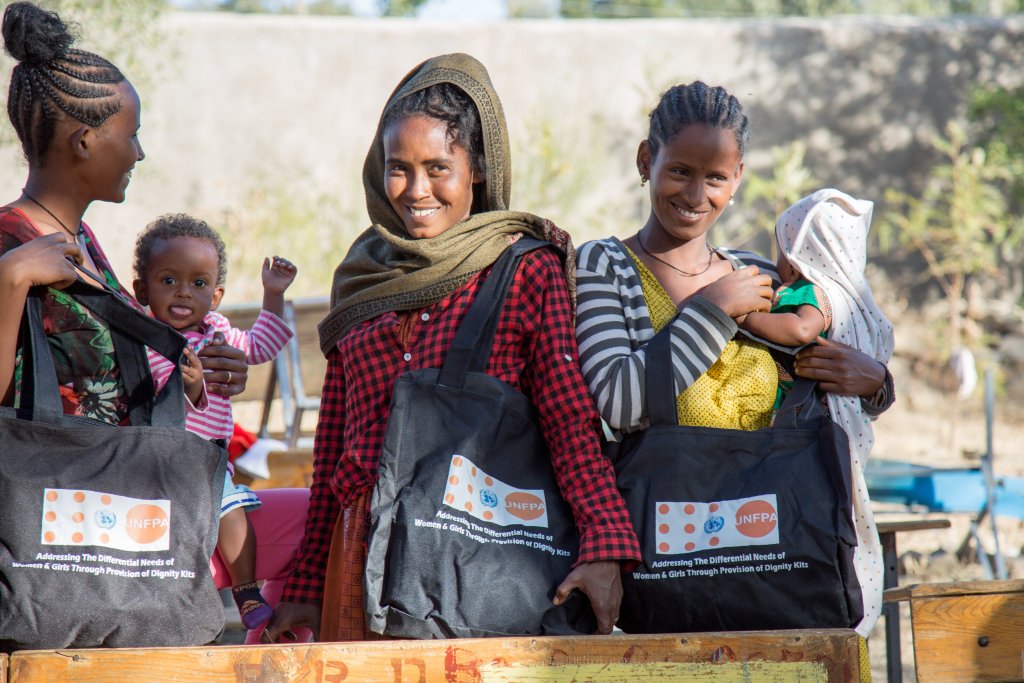
Women’s bodies are not a battlefield. But in case after case, sexual violence has been used as a tactic of war to destroy families, plague communities with fear, and wreak havoc on the bodies and minds of women and girls. Since 2000, the United Nations has called on all parties involved in conflict to protect women and girls from sexual violence. When these crimes occur, the UN also asks that perpetrators are held accountable. Sadly, sexual violence in conflict is happening today in places like Ethiopia, the Democratic Republic of Congo, Libya, and Afghanistan. And, while women and girls file most reports of conflict-related sexual violence, violence toward men, boys, and LGBTQI individuals is widespread.
Reporting Issues
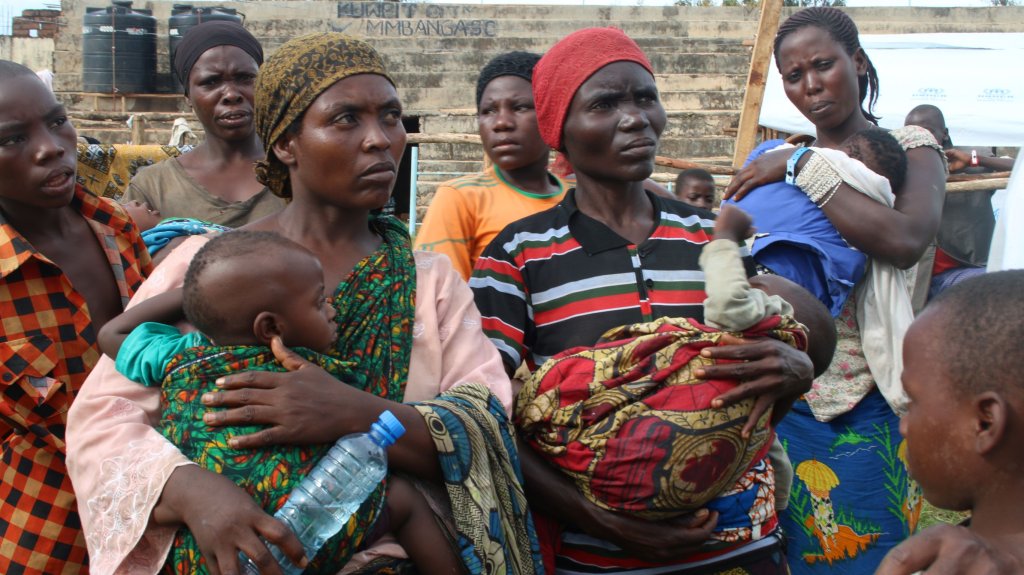
Sexual violence anywhere is destructive, degrading, dehumanizing, and extremely underreported. But in conflict settings, the breakdown of health and justice systems makes it that much harder for survivors to report violence and to access care. Rose, for example, survived rape during Burundi’s civil war. She explains, “I did not report the incident because there was nowhere to report. Reprisals and stigma scared me and I was young. I lacked trust in the police and law enforcement authorities. I was also ashamed of myself and I did not want anyone to know about it. Reporting was not even my priority as I had a lot of health complications due to that rape. My priority was safety and getting medical help. The worst part is that my family was killed, and my sister got raped and died straightaway; I saw everything.”
As Rose explains, survivors experience intense and compounding trauma. Often, just as they experience one of the worst moments of their lives, the conflict destroys the support systems that would help survivors to heal.
Certain acts of sexual violence are more common during conflict, like forced pregnancy, sexual slavery, gang rape, and forcing family members to watch violent acts. Often the point of such brutality is to obliterate communities with psychological terror. In ethnic conflict, sexual violence can cause women to become infertile or to become pregnant with the child of their rapist. Many survivors speak of wishing to die rather than endure such abuse.
Forced Impregnation
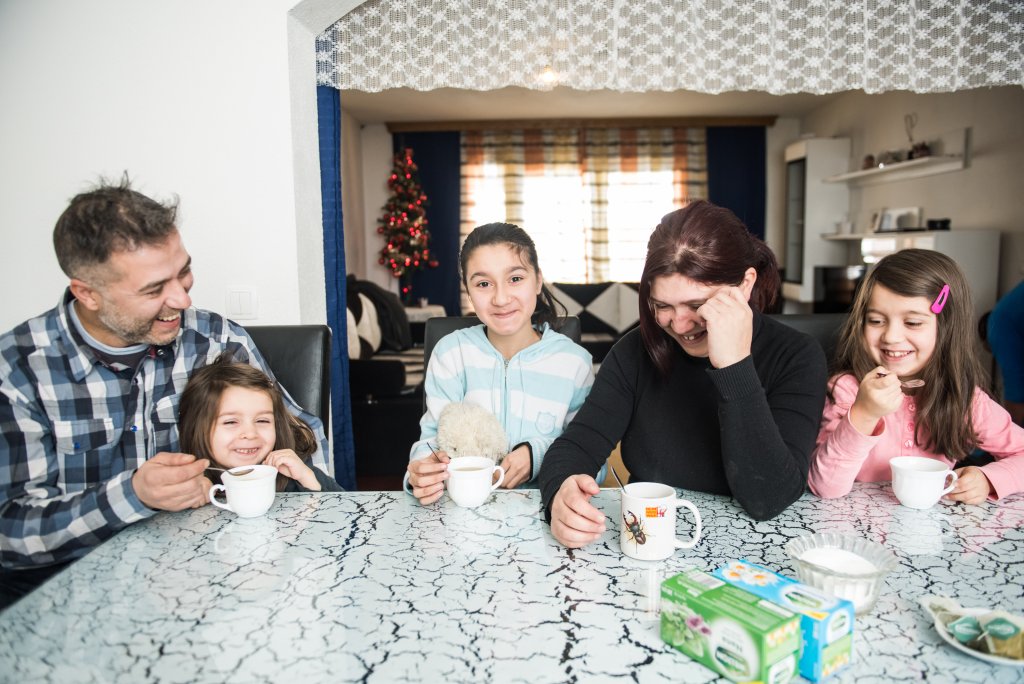
In Bosnia and Kosovo, Muslim women faced systematic rape and forced impregnation by Serbian police and soldiers. Besa lived through this horrific experience. Soldiers took her and 60 others from their town to a farm. Serbian police and soldiers kept Besa and 20 other women in a barn, where they repeatedly raped and abused them. Besa recognized one of the attackers as someone from her community. On the last day of their captivity, the soldiers murdered Besa’s father-in-law and 20 other men. Besa, her three young children, and the other women and children fled to Albania for safety. It was there that Besa discovered that she had become pregnant. After the doctor congratulated her, Besa remembers, “I just stared at her and fainted.”
Besa received mental health counseling from a clinic and her husband became her “greatest supporter.” But, despite reaching a better place, Besa’s experience still follows her. “The only thing that continues to disturb me is that justice is still missing for me and so many other women who survived the same, despite recognizing one of the perpetrators by name.” Besa’s issue is a common one in post-conflict settings. Often, perpetrators of violence go on to live normal lives in the communities they victimized. Survivors may see their attackers in their daily life and risk retraumatization. This is when a survivor is reminded of a previous traumatic event and then experiences that event again in the present. Further, the lack of justice can undermine peace after the conflict is over.
Children of Conflict-Related Sexual Violence
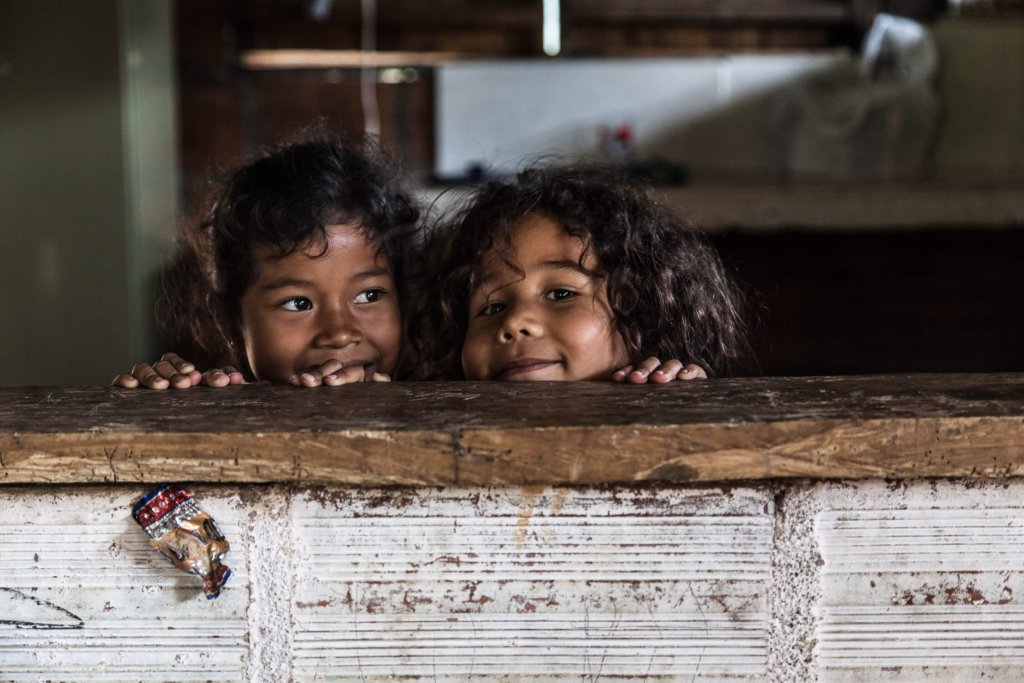
Sexual violence during conflict stays with communities for generations. Women who become pregnant as a result of wartime rape are more likely to resort to suicide, unsafe abortion, and infanticide. Women who carry the pregnancy to term often face a life of exclusion, abandonment, and poverty. In the Rwandan genocide, 5,000 to 25,000 children were born as a result of more than 250,000 instances of rape. Their families and communities called them “little killers” “the fruit of hate” and the “children of bad memories” and they often had turbulent relationships with their mothers. Even though their community was the source of their rejection, these children ultimately saw the genocide as the cause of the problems. Today, these children are in their mid-20s.
In Colombia, the government and the Revolutionary Armed Forces of Colombia (FARC) signed a peace agreement in 2016. All parties involved in the conflict resorted to sexual violence. Today, Colombia is the only country in that recognizes children of wartime rape as victims. Both survivors of sexual violence and their children are entitled to monetary reparations through Colombia’s Victims Unit. But, even though the government acknowledges them, their communities do not. The children are commonly known as “children of the green people” or “paraquitos,” which is Spanish for “little paramilitaries.” And, their mothers grapple with identifying as victims. A representative from Colombia’s Victims Unit explains, “Many mothers have not declared or have not been recognized as victims… In many cases, we see it’s because of shame or fear.”
Sexually Transmitted Infections, including HIV/AIDS
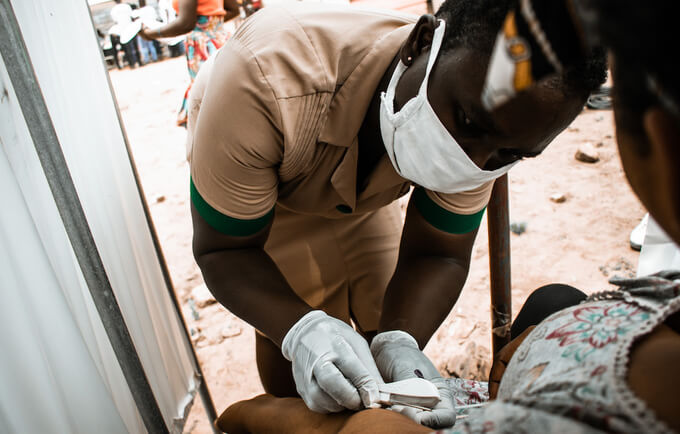
The WHO links the excessive brutality of sexual violence during war -including rape by multiple assailants and increased risk of mutilation– to higher rates of HIV transmission. Soldiers violated between 250,000 to 500,000 women and girls in the Rwandan genocide. The Rwandan Government recognizes that “the situation of HIV/AIDS infection was aggravated considerably” by the widespread violence.
18-year-old Maria is one Rwandan woman who is now living with HIV/AIDS after surviving sexual violence. She watched as soldiers murdered her family. While running away, five soldiers caught and raped her. After the assault, the soldiers slashed her genitals with knives and left her to die. Maria was bleeding to death when a medical team found her and took her to a hospital. As a result of the violence, Maria had to have an emergency hysterectomy and reconstructive surgery. The doctors then discovered that she also had HIV/AIDS. Maria will never be able to be sexually active or have children. Years later, the attack still torments Maria. “They have ruined my future. I hope God will punish them. I am not the only one. What they did to me they did to many others.”
Maria, like many survivors of sexual violence, experienced complex trauma from multiple events. Maria lost her home, her family, her health, and any dreams of having a family in the future. Mental health counseling is an important aspect of care for any survivor of sexual violence, but in extreme cases like Maria’s, it is essential.
Alienation
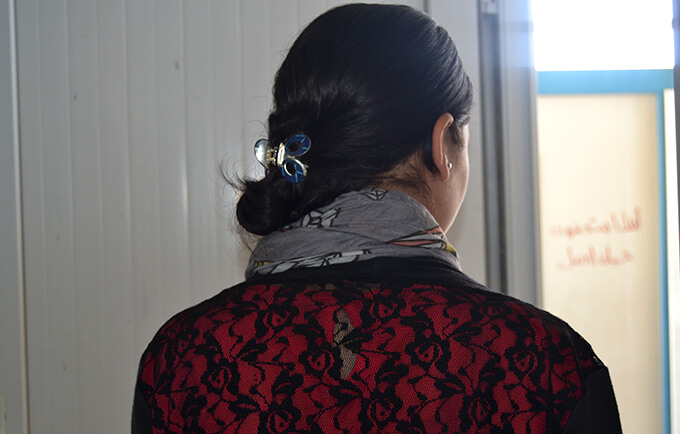
Communities sometimes reject women who experience sexual violence, because they are a reminder of the atrocities the community endured. Communities see survivors as undesirable or defiled, even though they had no say in what happened to them. A Serbian soldier raped Teuta when she was just 9 years old. Her grandmother took care of her after the attack, but she told Teuta that the crime was “shameful” and to never speak about it again. Teuta spent years living in isolation and fear that someone would find out. Eventually, Teuta’s stepmother found out. When Teuta became engaged, her step-mother told her fiancé what had happened to her as a child. Teuta remembers, “On that day he told me that we cannot be together and left me.”
The rejection and isolation that survivors, like Teuta, endure prevent them from rebuilding their lives. But, when women receive support, amazing things can happen. ISIS kidnapped Ekhlas, a Yazidi woman in Iraq, when she was 14-years-old. For six months, a 34-year-old man held her captive. After Yazidi fighters freed her, Ekhlas struggled to talk about her experience. But, she received support from her brother, who encouraged her to seek help. Although Elkhas lives in Germany now, she regularly travels to Iraq and Syria to share her coping techniques with other survivors of sexual violence.
A Future for Survivors
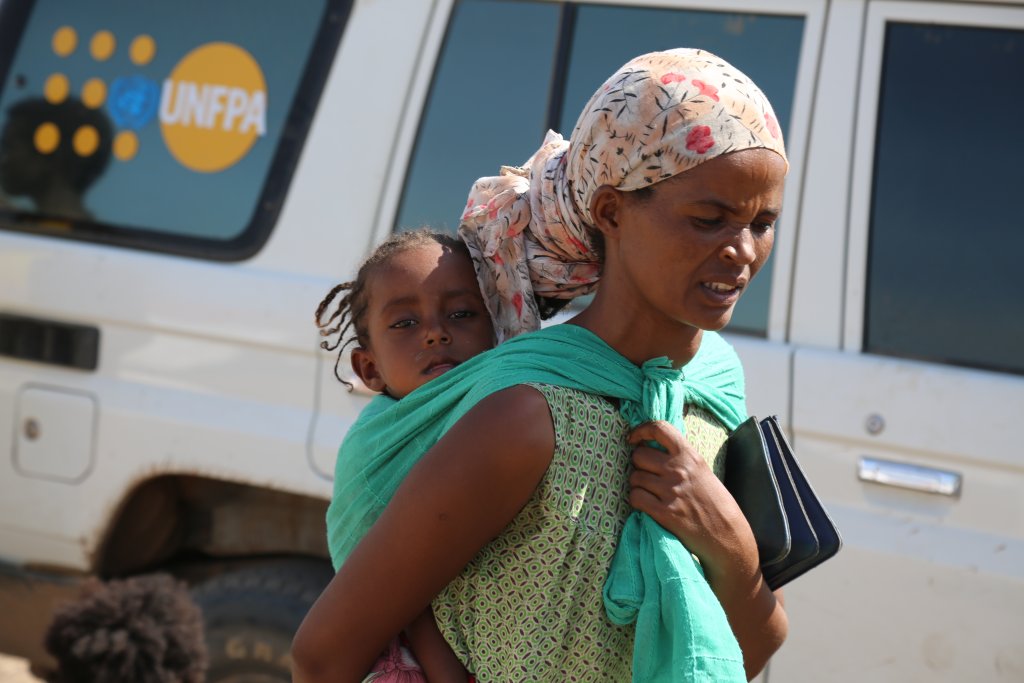
Conflict-related sexual violence has occurred all over the world, from the Balkan states of Bosnia and Kosovo, to African nations like Rwanda, Uganda, Burundi, Nigeria, Ethiopia, the Democratic Republic of Congo, and Sudan, and other places like Iraq, Syria, and Colombia. In many cases, sexual violence is the result of ethnic, religious, or political clashes, but always, it leaves behind traumatized women and communities.
In northern Ethiopia, at least 26,000 women have survived sexual violence and are in need of support. UNFPA is supporting safe houses for survivors, like Selam, who experienced repeated sexual violence. She said, “I was running from place to place without food or shelter. I was in fear all the time… There was no safe place for me until I got to the safe house.” At the safe house, Selam receives mental health care, treatment for rape, legal counsel, and connections to other health services and support networks. Now, Selam has hope. “When I leave this house, I would like to train and help other women like me in my community.”
UNFPA works to support survivors in Ethiopia and everywhere around the world by providing access to mental health care, clinical treatment for rape, legal counsel, care for injuries resulting from unsafe abortion, treatment for sexually transmitted infections, and prenatal and safe delivery care. Further, UNFPA works to sensitize health care workers and communities to the experiences of survivors of sexual violence.
Your support makes this critical work possible. Thank you for standing with survivors of sexual violence.
-Dana Kirkegaard